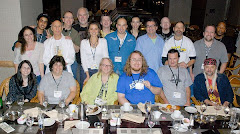 One of the reasons I write this blog is to share my process. I think it’s important that I share the ups and downs, the imperfect and the better than imperfect, the struggle, the slow baby steps towards achievement. In my opinion, success is built on a foundation of practice. Not perfection, not necessary production, but practice.
One of the reasons I write this blog is to share my process. I think it’s important that I share the ups and downs, the imperfect and the better than imperfect, the struggle, the slow baby steps towards achievement. In my opinion, success is built on a foundation of practice. Not perfection, not necessary production, but practice.It seems to me there are some vital aspects of achieving change in our lives.
One: to assess where we are – good and bad. The “morning pages” suggested by Julia Cameron have this function. A daily practice of writing three pages of stream-of-consciousness whatever’s-in-my-brain leads to something. It gets the crap, the worry, the guck, the messy stuff out of our brain and down on the page. And it connects us to the creative flow. It does so, because it is something we do.
Over time, as we write what we feel, think, worry, we start to see patterns. I did something about my financial situation after writing about money worries every single day for three months. I set up a budget and I got a consolidation loan. I got tired of singing the same song and changed it!
And, I was surprised, after several weeks of morning pages, to realize that, for the first time in my life, I was hearing my own inner voice. It had been squashed and ignored for so long (because what everyone else wants, needs and thinks is waayyyyy more important, right?) it was very very quiet and I had to strain to hear it. How can I go on to #2 below if I can’t hear my own voice or assess my own feelings about what I’d like to do with the time that I’ve been gifted with?
Two: to visualize where we would like to go. This can be fairly general – “I’d like to have more creativity in my life,” “I’d like to be in better physical shape.” Or it can be specific – “I’d like to make that trip to Italy I’ve always dreamed of,” “I’d like to get back to playing the guitar,” “I’d like to take a photography course,” “I’d like to be more confident as a speaker.” The list is endless. Morning pages (and doing the tasks in ‘The Artist’s Way’) allow us to spill out our dreams and visions and fears. Because we’re in the flow every morning, before we go out to face the world, we touch base with the most important person in our lives, our best friend – ourselves.
Three: to begin the action(s) that will take us there. This is the crucial step. One of the reasons I like recommending morning pages is that it is action. It is a ‘do’. It’s too easy to read self-help books and talk to therapists and talk to friends. Change only happens through work, through struggle. We begin, not knowing how long it will take, or if it will work, or even where we will end up. But we begin, and we continue to begin, every single day. All those beginnings, in time, lead us. We find out more, we experience, our daily process is part of the quality of our lives. We do. We are in motion.
Four: to be conscious of what we say to ourselves along the way. We need to recognize that much of what our internal editor tells us is a feedback loop created by a part of us that thrives on negativity, stress, anger and frustration. This entity within us has a vested interest in us not changing, therefore, no matter what we do, it says bad things. “You’re too old,” “they’re just being nice,” “that was crap,” “who do you think you’re kidding,” “you may have done it once, but you’ll never do it again.” If we are not aware of what we say to ourselves, we run the risk of shutting down, turning off, stopping. The act of morning pages, and the act of taking up the threads of things we desire to do, these acts help us defeat the voice within.
Five: find joy in the little things along the way. Be awake and really taste that first cup of coffee. Be awake and smell the tang of the sea in the air when you walk to work. Notice the colours of the trees. If, on our way to work, we are in our ‘heads’, thinking about the day ahead, worrying about something that might happen, remembering what happened yesterday… then we are not in the present moment. But our body reacts to those thoughts as though they are happening – and we get stressed out. Returning to the ‘now’ is as simple as stopping to take a deep breath, and really being aware of that breath in and out. This is also something we can practice over the course of the day.
Morning pages, conscious breathing, conscious attention, visioning our lives and then taking steps towards that vision, these are how we practice process.
“As we are creative beings, our lives become our works of art.” ~ Julia Cameron
























